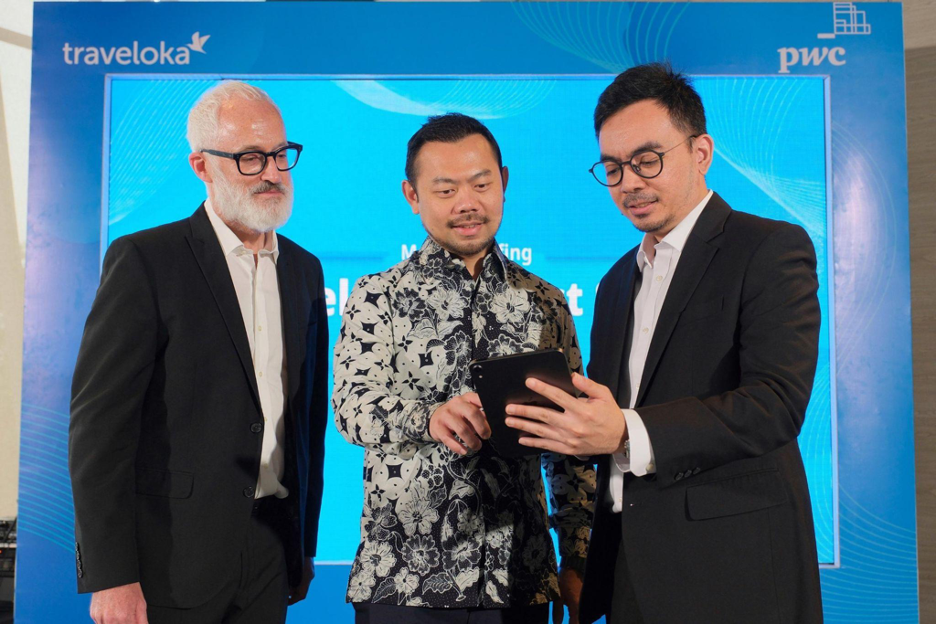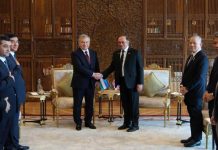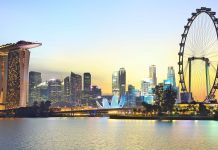A socio-economic impact study released by PwC Indonesia today reveals Traveloka, Southeast Asia’s leading travel platform, is making significant social, environmental, and economic contributions to Indonesia, Malaysia, Singapore, Thailand and Vietnam, its core areas of operations.
While Traveloka’s primary economic contribution is within the tourism sector, its activities also extend to other sectors such as agriculture and energy, indicating a broader economic involvement.

The study highlights Traveloka’s role in stimulating an increase in Indonesia’s Gross Value Added (GVA) across a four-year period, accounting for approximately US$10 billion between 2019 and 2022. Of this amount, the tourism sector accounted for more than US$4.5 billion, contributing 2.7 percent to the sector’s GDP.
This contribution played an important role in aiding the post-pandemic recovery of the travel and tourism sector in the region.
“Traveloka’s impact is far-reaching, and we generate significant real-world value. We engage with millions of travellers daily, and this PwC Indonesia study quantifies for the first time our sizable contribution to Indonesia’s economy through powering innovation, driving growth for local businesses, and job creation,” said Caesar Indra, President, Traveloka.
“As we continue to grow our presence around the region and the world, we remain committed to serving our customers, and delivering positive and sustainable impact in Indonesia for the long-term.”
“This study measures the ripple effect that Traveloka’s operations have on various sectors in the region,” said Julian Smith, Director, PwC Indonesia. “The result illustrates a symbiotic relationship between Traveloka and the wider economy, fostering growth and innovation in a period where resilience and adaptability are more vital than ever. It is encouraging to witness a tech unicorn not only thrive but also catalyse positive change in the Southeast Asia region.”
Tangible business impact
The study by PwC Indonesia highlights Traveloka’s impact as it enables its partners in Indonesia to unlock access to new global audiences and innovate to diversify revenue streams. 86 percent of businesses who participated in the study agreed that Traveloka has helped to accelerate their business growth in the Travel & Tourism, Food & Beverages and Lifestyle Sectors. Respondents reported an average of 50 to 75 percent growth in sales after partnering with Traveloka.
Further, 67 percent of businesses based in off-the-beaten-track destinations reported experiencing positive trends in visits to their businesses after partnering with Traveloka, with 77 percent agreeing that Traveloka has helped them promote domestic tourism.
In addition, 62 percent agreed that Traveloka has helped increase their competitiveness against businesses in other destinations. Among women-owned businesses, 85 percent agreed that Traveloka has helped them promote their products and services, reach more customers, and obtain higher revenue from online sales.
The study mirrors Traveloka’s Southeast Asia growth
The multi-national Traveloka impact reflects the geographical expansion from Indonesia to the region. With growing demand, Traveloka established more direct, sustainable partnerships with suppliers in Southeast Asia and fostered more profound relationships with travel partners. This resulted in better service quality for Traveloka’s consumers and the impact measured in the PwC Indonesia study.
The positive impact Traveloka has had in the region is set to continue as Traveloka seeks to become the most sustainable technology company in Southeast Asia, with the highest ESG rating from Sustainalytics and MSCI in its category by 2024. To accomplish this, the platform is committed to conducting its business responsibly and ethically to reduce its direct and indirect environmental footprint—both internally and externally.
According to a user survey on sustainability products, it was found that 88 per cent of the users surveyed in Indonesia value the option of offsetting their carbon footprint while booking a flight on the Traveloka app. In addition, 80 per cent of the respondents said they would be more likely to choose an accommodation with sustainability practices. Thus, Traveloka incorporated a filtering option labelled “Sustainable Tourism” within the application. Users can now select the Carbon Offset Checkout on their flights and accommodation options certified by the Global Sustainable Tourism Councils (GSTC).
























